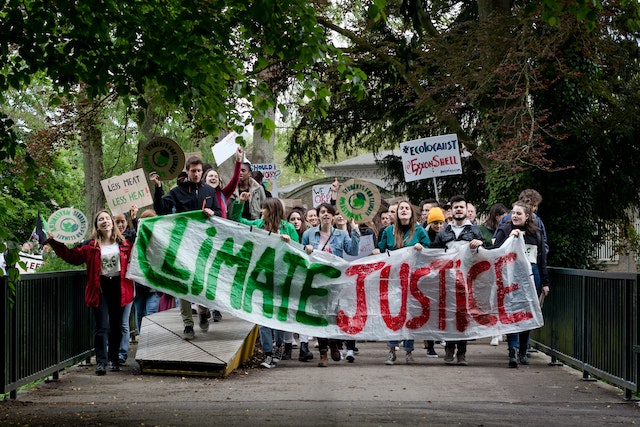For the last few years, we have seen the rise of climate concerns and sustainability as top priorities when looking for a job among younger generations. Such concerns keep on escalating and have now become a reason to even leave their jobs.
Concepts such as climate anxiety are relatively new in the business world, and even mental health has just made a somewhat important appearance in workplaces, although there is still a long way to go.
What this shows is an increasingly relevant look into climate concerns and the state of our planet and society when we think of putting ourselves to work for a given company, greatly considering the impact this has on the above.
Questions such us the state of the sustainability strategy of businesses are now key for many; especially younger generations who have been witnesses of biodiversity decay and company’s greenwashing strategies to sweep matters under the carpet.

But what does this means for business today? For once, it means that talent attraction and retention are intrinsically linked to sustainability and the company’s action plan and compromise to actually mitigate negative impact and be part of the change.
The impact of sustainability on the employee experience
According to recent research carried out by Deloitte more than 40% of Gen Z and Millennials have changed jobs or industries due to climate concerns, or plan to do so in the future, making sustainability a top priority for young talent.
Climate concerns, as well as environmental and social sustainability have already become key aspects for talent attraction and retention, and will continue to be so.
Engage employees in the sustainability strategy
In fact, it is younger generations that are currently among the most relevant actors when it comes to defining business and work trends. After all, Millennials, this is, those born between 1981 and 1996 amount to 23% of the world population, while their younger counterparts, Gen Z, born between 1997 and 2012 amount to 32% of the global population.
With most of them in the job market, and others on the way, these generations’ needs and concerns should not go unnoticed by businesses if they are to have successful employee experiences that help attract and retain talent.
Sustainability is no longer an option
Society’s individual concerns for the environment and the state of business impact goes beyond making personal day to day decisions such as recycling, reducing consumption or buying more consciously. Chances are, whatever bugs people in their lives they will bring it into work too.

For 55% of Deloitte’s survey’s respondents such concern for the environment means actively looking for businesses and brands with a good sustainability reputation and performance before applying for or accepting a job offer. And for an astonishing 40%, as we have mentioned before, it means actually changing their jobs.
And so the pressure is on more than ever, businesses and organizations need to step up their sustainability concerns for multiple reasons, from protecting the very planet from which they get resources from, to ensuring a sustainable livelihood for the future and keeping around the people that help grow the organization.
Make employees part of the sustainability strategy
Sustainability is a must for most workers today, and will continue to be so as younger employees begin to enter the job market. But far from being indifferent from participation in sustainable efforts, people look for the opportunity to be actively engaged and find purpose in having a positive impact through their jobs.
Guide to building a sustainability culture
In DoGood we believe that working collectively can help us find that which alone may seem unattainable or useless. That is why we think the workplace is the perfect environment to find that collective eagerness to make a difference, both for the sustainability and purpose of the company and a more sustainable way of being for all.
Through our technology we are able to activate and track employees’ impact, creating engagement that translates into improved ESG metrics, reputational value and an overall positive impact for the environment and society.







